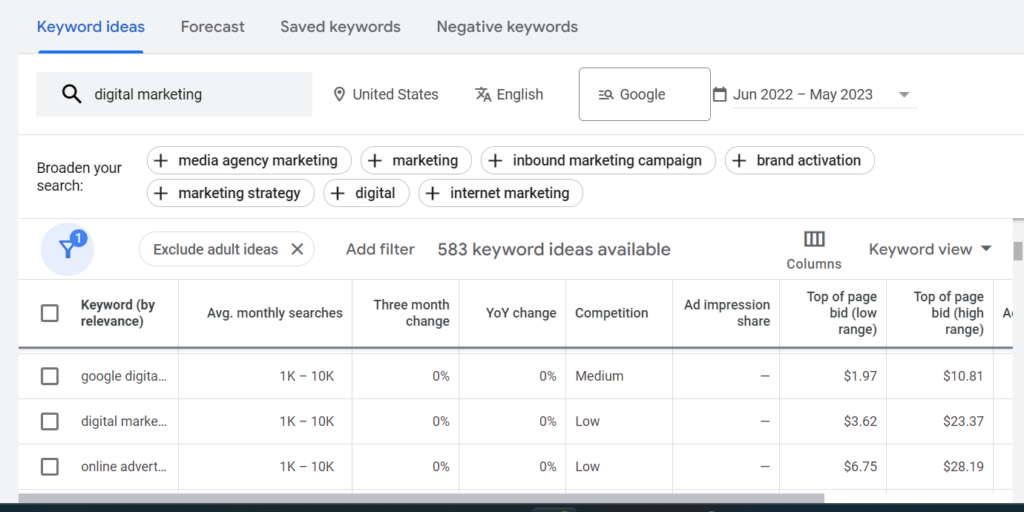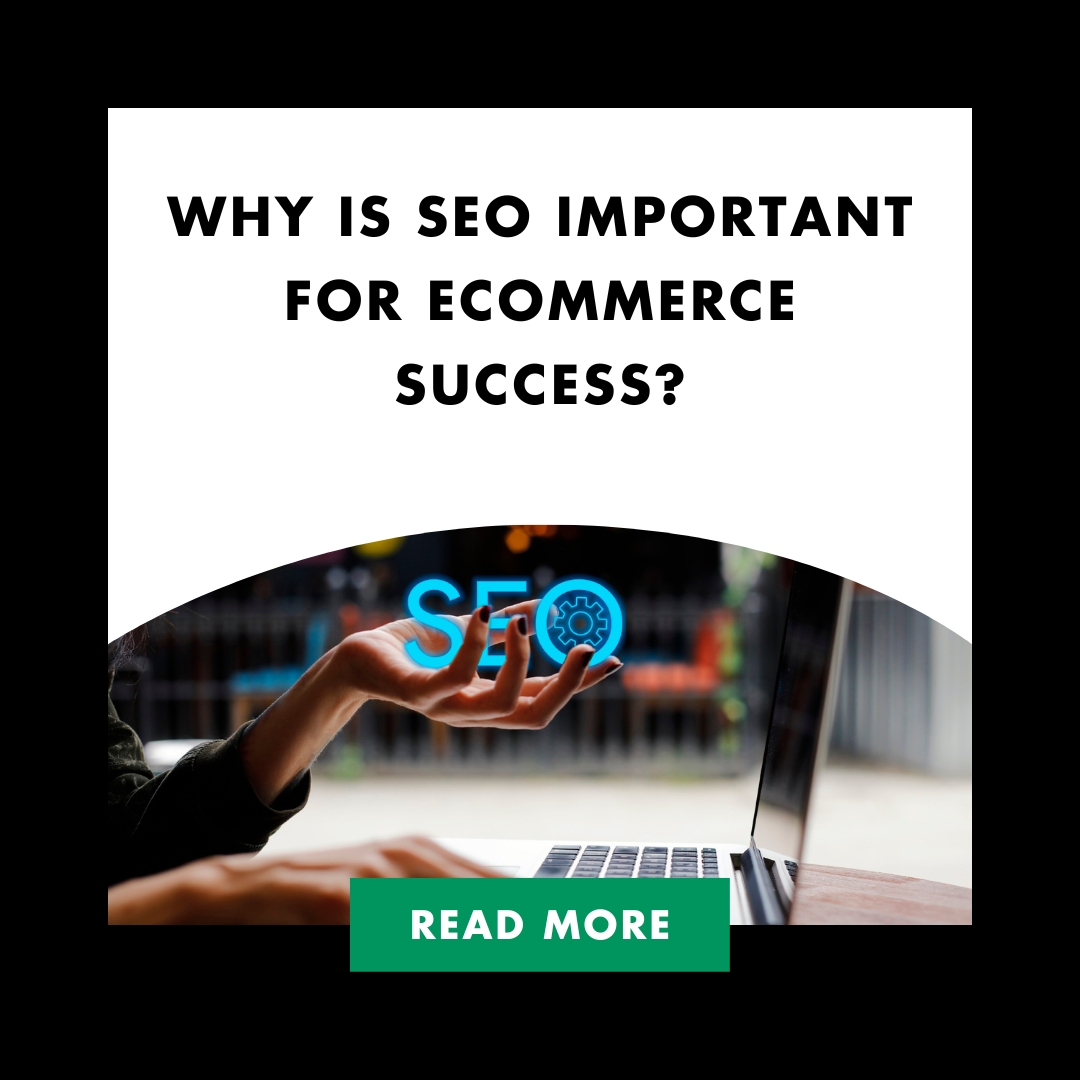Why is SEO Important for Ecommerce Success?
By leveraging the advantages of SEO, ecommerce sites can maximize their visibility and reach in a highly competitive digital environment. In a competitive digital environment, leveraging SEO can increase your ecommerce site’s exposure, creating brand recognition and cheaper website traffic.
In this blog post, we delve into various strategies that make SEO important for ecommerce success. You will learn how to effectively conduct keyword research using tools like Google Keyword Planner and Ahrefs, boost organic traffic through content marketing initiatives such as high-quality blog posts tailored to specific buyer personas, and optimize site speed for improved user experience.
Furthermore, we discuss acquiring high-quality backlinks by identifying link-building opportunities via competitor analysis and industry influencer outreach efforts. We also explore enhancing local citations by claiming listings on popular directory sites like Yelp and encouraging customer reviews through social media campaigns.
Lastly, you’ll discover how optimizing landing pages with clear calls-to-action coupled with easy checkout processes can significantly improve user experience. Moreover, personalization techniques leveraging AI-driven product recommendations based on user behavior play a crucial role in driving ecommerce growth while building industry authority and trustworthiness further solidifies why SEO is important for ecommerce success.
Table of Contents
Driving Brand Awareness and Lower-Cost Traffic
SEO is crucial for ecommerce sites because it can increase brand awareness and drive low-cost traffic to the top of the funnel. By using tools like Google Keyword Planner and Ahrefs, businesses can create a comprehensive keyword matrix that ensures relevant page URLs and subdirectories are created based on popular search terms.
Effective Keyword Research with Google Keyword Planner
Google Keyword Planner is a great resource for discovering fresh terms connected to your offerings or services. It provides insights into average monthly searches, competition levels, and suggested bid prices. By identifying high-potential keywords, you can incorporate them into your content strategy and drive more targeted organic search traffic to your online store.

Finding Low Competition Keywords with Ahrefs
Ahrefs is another powerful SEO tool that offers in-depth analysis of backlinks, domain authority, competitor rankings, and more. It can help you find low-competition keywords with high search volume potential, which is perfect for smaller ecommerce sites looking to compete against larger industry players. By targeting these less competitive yet highly searched phrases within your web pages’ content structure, you increase the likelihood of ranking higher in search engine results pages (SERPs).
- Action Step: Regularly use Google Keyword Planner and Ahrefs when planning your site’s content strategy to ensure maximum visibility within organic search results while minimizing ad spend through efficient use of PPC campaigns.
- Bonus Tip: Monitor your site’s performance using tools like Google Analytics and Google Search Console to gain valuable insights into user behavior, search traffic patterns, and areas for improvement.
Boosting Organic Traffic with Content Marketing
Content marketing is crucial for boosting organic traffic and providing valuable information to consumers. By focusing on high-value content and appropriate keywords, ecommerce sites can attract more interested visitors who are likely to convert into customers. It’s important to ensure website usability factors such as site speed optimizations to enhance the user experience.
Creating Engaging Blog Posts for Targeted Audiences
Developing buyer personas is essential to create engaging and informative content that appeals to your target audience. Incorporate relevant keyword research into your blog posts for improved search engine visibility. Tools like the Google Keyword Planner can help you perform keyword research and identify the most relevant keywords for your content.

Optimizing Site Speed for Improved User Experience
A slow-loading website negatively impacts search rankings and frustrates users. According to a study by Search Engine Journal, 70% of consumers admit that page speed influences their willingness to buy from an online store. Implement various optimization techniques such as compressing images, minifying CSS and JavaScript files, and leveraging browser caching to enhance your ecommerce site’s performance.
- Actionable Tips:
- Use tools like Google PageSpeed Insights or GTmetrix to analyze site performance issues and implement recommended improvements.
- Collaborate with web developers or invest in professional services if necessary for optimal results.
Acquiring High-Quality Backlinks
Backlinks from high domain authority websites significantly improve rankings within search engines. This prominent exposure on organic search-result pages generates immediate sales for an ecommerce site. Developing strategies for acquiring quality backlinks should be a priority in any SEO plan.
Identifying potential link-building opportunities through competitor analysis
An effective way to start building your backlink profile is by analyzing your competitors’ links. Tools like Ahrefs and Moz Link Explorer can help you identify the sites linking to your competitors, giving you insights into potential link-building opportunities. By reaching out to these websites with valuable content or partnership proposals, you can acquire high-quality backlinks that will boost your search engine rankings.
Reaching out to industry influencers or guest posting platforms
In addition to competitor analysis, another strategy for acquiring high-quality backlinks is collaborating with industry influencers and contributing guest posts on relevant platforms. Reach out to bloggers, social media personalities, and other experts in your niche who have established audiences and offer them unique content that their readers would find valuable. In return, they may provide a backlink pointing towards your ecommerce site.
- Create a list of targeted influencers: Identify key players in your industry who have significant online followings and are open to collaborations.
- Craft personalized outreach messages: When contacting influencers or guest posting platforms, make sure each message is tailored specifically for the recipient, highlighting the value your content can bring to their audience.
- Offer exclusive content: To increase your chances of securing a backlink, provide unique and high-quality content that hasn’t been published elsewhere.
By focusing on acquiring high-quality backlinks through competitor analysis and strategic partnerships with industry influencers, you’ll strengthen your ecommerce site’s on-page SEO and drive more organic search traffic to your product pages. Don’t forget to conduct thorough keyword research and optimize your web pages for organic search results. For more tips and insights on search engine optimization, check out Search Engine Journal.
Key Takeaway:
Acquiring high-quality backlinks is crucial for boosting an ecommerce site’s search engine rankings and generating immediate sales. Strategies such as competitor analysis, collaborating with industry influencers, and offering unique content can help acquire these valuable backlinks. By focusing on these tactics along with thorough keyword research and optimization, businesses can drive more organic search traffic to their product pages.
Enhancing Local Citations
Local citations are crucial for ecommerce sites to connect with potential customers searching locally or regionally. By claiming and optimizing listings on popular directory sites like Yelp, Yellow Pages, and Foursquare, you can ensure that your business information is consistent and up-to-date across all platforms. This not only increases the chances of being found by potential customers but also contributes to a positive brand image.
Claiming Listings on Popular Directory Sites
Claiming listings on popular directory sites is an essential part of on-page SEO. It helps improve your ecommerce site’s visibility in local search results. By doing so, you can establish a strong presence in the local market while building trust among potential shoppers. Make sure to claim your listings on credible sources like Google My Business, Yelp, and Facebook.
Encouraging Customer Reviews via Social Media Outreach Campaigns
Studies demonstrate that consumers believe online reviews to be as reliable as word-of-mouth from people they know, so having a strong presence on review sites can have a major effect on your ecommerce business. Studies show that 88% of consumers trust online reviews as much as personal recommendations from friends or family members. Therefore, having a strong presence on review platforms can significantly impact your online store’s success. Encourage satisfied customers to leave reviews by sharing their experiences through email follow-ups or social media campaigns. This can not only foster trust in prospective customers, but also supply useful insight for enhancing your goods and services.
To maximize visibility in the local market, ensure that your ecommerce site has strong SEO by claiming listings on popular directory sites and encouraging customer reviews. By claiming listings on popular directory sites and encouraging customer reviews, you can establish a strong presence in the local market while building trust among potential shoppers. Make sure to conduct thorough keyword research and optimize your product pages for organic search results. For more information on SEO, check out credible sources like Search Engine Journal.
Key Takeaway:
To improve your ecommerce site’s visibility in local search results, it is important to claim and optimize listings on popular directory sites like Yelp, Yellow Pages, and Foursquare. Encouraging customer reviews through social media outreach campaigns can also significantly impact your online store’s success by building trust with potential customers. Overall, local citations are a crucial part of any ecommerce site’s SEO strategy for establishing a strong presence in the local market.
Optimizing Landing Pages & User Experience
Optimizing landing pages is crucial for achieving higher performance metrics within organic search results. User experience optimization is equally important for eCommerce conversions. Effective use of keywords helps tailor content to shoppers’ desires while delivering seamless navigation throughout your site.
Implementing clear calls-to-action and easy checkout processes
CTAs on your website can boost conversion rates. Simplifying the checkout process by minimizing steps can drastically enhance user experience and result in more successful transactions. Offering guest checkouts without forcing users to create an account can help streamline this process.
Designing mobile-responsive layouts for better browsing experiences
Ensuring that your website is mobile-responsive is essential for providing optimal browsing experiences across various screen sizes and platforms. Implementing responsive design techniques allows your site’s layout and content elements to adapt seamlessly based on the device being used by visitors – resulting in improved usability and engagement with potential customers.
- Actionable Tip: Test your website’s responsiveness using tools like Google’s Mobile-Friendly Test or BrowserStack.
- Actionable Tip: Optimize your site’s load time by compressing images and enabling browser caching.
By optimizing landing pages and user experience, eCommerce sites can enhance their online presence in search engine results. This leads to increased brand awareness, higher conversion rates, and long-term growth within the competitive digital marketplace.
FAQs in Relation to Why is Seo Important for Ecommerce
Yes, investing in SEO is worthwhile for e-commerce businesses as it leads to long-term benefits such as increased organic traffic, better search rankings, and enhanced discoverability through local citations and backlinks acquisition.
Yes, investing in SEO is worthwhile for e-commerce businesses as it leads to long-term benefits such as increased organic traffic, better search rankings, and enhanced discoverability through local citations and backlinks acquisition.
SEO directly influences an e-commerce business’s online presence by improving its website’s ranking on search engine results pages (SERPs), resulting in greater visibility among potential customers searching for relevant products or services.
SEO in e-commerce refers to the process of optimizing an online store’s website elements, such as content quality and relevance, site structure and navigation, backlinks profile, and page load speed, to improve its search engine ranking position (SERP) and attract more targeted visitors who are likely interested in purchasing from that store.
Conclusion
Effective SEO strategies can drive brand awareness and lower-cost traffic to your ecommerce site. Tools like Google Keyword Planner and Ahrefs can help you create high-value content with targeted keywords. Acquiring backlinks from high domain authority websites can enhance your site’s credibility. Local citations can improve your site’s discoverability. Optimizing landing pages and user experience can increase conversions. Personalizing strategies in ecommerce can improve customer engagement. Establishing industry authority can help you stand out from competitors. Comparing ROI between organic search vs paid advertising channels can help you make informed decisions.
Want to Talk Strategy?
Is this something you're looking to dive deeper into? Sign up for a free strategy session with our team!
Let's TalkSubscribe for New Content
Share on Social
New Posts to Check Out

First-Party Data Engine: Email/SMS Flows that Don’t Get You in Trouble

Winning Sales Strategy for 2026: SLAs, Lead Scoring & Shorter Cycles

Sales After Launch: How to Sustain Velocity in Weeks 5–20

Content that Fuels AI Answers: Structured FAQs, Data, and Citations

Local & Dispensary SEO: Rank in Every Market You Can Legally Sell

Surviving Google’s Updates: A 90-Day Content Quality Sprint

Paid Media for THC Beverages (Where Permitted): What Actually Works

Local SEO in the AI Era: Rank Every Branch (GBP, Reviews, Proximity)

Website Architecture for Beverage Brands: Hubs, Product Pages & Local SEO

